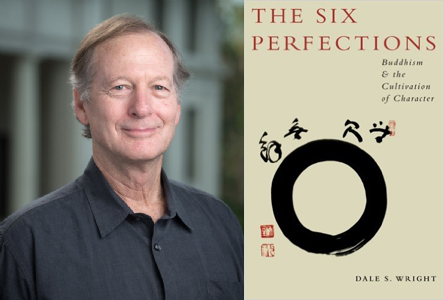The general criticism of self-cultivation as being too individualistic fails to recognize that we are unable to be of service to others until we have undergone enough self-transformation to begin to see larger realities beyond the importance of our own personal well-being.
 Prof. Dale Wright, from Occidental College in Los Angeles, answers this question from a “Buddhist Perspective” in three articulate paragraphs on the Psychology Today blog. The article is accompanied by the tag line: “Buddhist ethical practices aim at taking the self out of self-cultivation.”
Prof. Dale Wright, from Occidental College in Los Angeles, answers this question from a “Buddhist Perspective” in three articulate paragraphs on the Psychology Today blog. The article is accompanied by the tag line: “Buddhist ethical practices aim at taking the self out of self-cultivation.”
In Buddhism, the Six Perfections define the most important areas of self-cultivation: generosity, morality, tolerance, energy, meditation, and wisdom. On Thursday evening, September 17, Dale will present the next installment of the Advanced Buddhist Studies Lecture Series, The Six Perfections: How Meditation Grounds the Cultivation of Character. Against an overview of the Buddhist teachings on the Six Perfections, Dale will focus on the way meditation functions within all six.
On Wright’s book, The Six Perfections: Buddhism and the Cultivation of Character, Robert Thurman offered these comments:
I cannot remember having enjoyed an exposition of the six transcendent perfections of the bodhisattva as much as this one from Dale Wright. He is careful, precise, lucid, and yet light and humorous. You can actually understand what he is talking about—and it is about the most profound and useful of philosophical and spiritual journeys. I strongly recommend this book.











